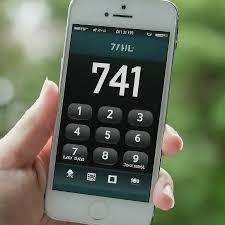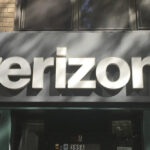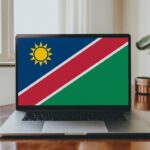The number 741 is not currently an assigned geographic area code within the North American Numbering Plan (NANP), which covers the United States, Canada, and the Caribbean. Calls displaying 741 as an area code should be treated with extreme caution, as the number is highly likely to be the result of Caller ID Spoofing.
However, the three digits 741 do appear in certain phone number prefixes or specific international numbering plans, leading to frequent confusion. This guide will clarify the ambiguous status of the 741 area code, specify where the digits are known to be used, and detail the associated scam risks.

-
Status of the 741 Area Code in North America
While 741 is not an active area code that serves a large region in the U.S. or Canada, the three digits frequently show up in localized contexts, which can confuse consumers.
Why You See “741”
- Unassigned NANP Code: In the United States and Canada, the 741 number is officially reserved for potential future use and does not designate a large region.
- Exchange Code (Prefix): The digits 741 are actively used as an exchange code (the three digits immediately following the area code) in many parts of the U.S.
- Florida: The prefix 741 is commonly found in the 941 area code (Southwest Florida, including Bradenton and Sarasota) and the 727 area code (St. Petersburg/Clearwater). For example, a phone number might be (941) 741-XXXX.
- California: The prefix 741 is also known to be used in some local exchanges in the 626 area code (Alhambra, CA).
- Mexico (Guerrero State): In the Mexican Numbering Plan, 741 is an active area code (or part of a larger numbering plan) for some regions within the state of Guerrero, Mexico. This area is in the Central Time Zone (CST).
Time Zone
Because the 741 area code is not a generally assigned area code in the U.S., it does not have a single designated time zone. Any legitimate call using “741” as a prefix will follow the time zone of its parent area code (e.g., Eastern Time for Florida’s 941/727, or Pacific Time for California’s 626).
-
Scam Risk Associated with 741
Receiving a call that appears to originate from the three digits 741—especially if it is not immediately recognizable as a local number you know—should be handled with extreme caution.
Caller ID Spoofing and Unassigned Codes
Scam artists frequently use numbers that are technically valid prefixes or unassigned area codes to trick automated call blockers and consumers.
- Neighbor Spoofing: Scammers often use a nearby or familiar area code, coupled with a known local prefix (like 741), to make the call look local. The goal is to encourage you to answer, believing the call is from a nearby business or neighbor.
- Robocall Testing: Calls from obscure or unassigned codes may be part of an effort to test whether your phone number is active, marking you as a target for future, more persistent scam attempts.
Actionable Steps to Protect Yourself
- Do Not Answer: If you do not recognize the number, the safest course of action is to let the call go to voicemail. Legitimate callers will leave a message.
- Verify the Number: If a voicemail is left, pause before calling back. Search the full 10-digit number online. If it is a known scam number, warnings will likely be posted by other users.
- Block the Number: If the number calls you repeatedly, use your phone carrier’s spam-blocking service (such as Verizon Call Filter or AT&T Call Protect) or your smartphone’s built-in blocking feature.
- Do Not Engage: If you accidentally answer and the call involves threatening language, demands for immediate payment, or questions about your personal information (like your Social Security number or bank account details), hang up immediately.
Frequently Asked Questions
Is the 741 area code part of Florida?
No, 741 is not the area code for any region in Florida. The major area codes for the general Southwest Florida region are 941 (Bradenton/Sarasota) and 727 (St. Petersburg/Clearwater). However, phone numbers within those area codes often use the 741 sequence as the next three digits, making it a common local prefix.
Should I call back a missed call from (741) XXX-XXXX?
It is generally recommended not to call back an unknown number that uses 741 unless the caller has left a legitimate-sounding and expected voicemail. If the number is a spoofed international call (which can happen even when it appears domestic), calling back may result in unexpected high international long-distance fees.
What is the most common scam associated with unknown area codes?
The most common scams are the Neighbor Spoofing scam (where the number appears local) and the One-Ring Scam (often from international numbers), both designed to trick you into answering or calling back to confirm that your phone line is active and vulnerable.


